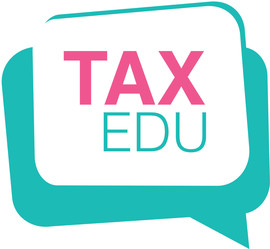What is the course about?
The EU does not have a direct role in raising taxes or setting tax rates. The amount of tax you pay is decided by your government.
The EU's role is to support implementation of national tax rules – to ensure they are consistent with certain EU policies, such as:
- promoting economic growth and job creation
- ensuring the free flow of goods, services and capital around the EU (in the single market)
- making sure businesses in one country don't have an unfair advantage over competitors in another
- ensuring taxes don't discriminate against consumers, workers or businesses from other EU countries
EU decisions on tax matters require unanimous agreement by individual governments. This ensures that the interests of every single EU country are taken into account.
The EU also has legislation on cooperation between tax authorities, transparency, tax avoidance, recovery of tax claims and VAT and excise duties.
Who should take this course?
This course is aimed at young adults. It includes information relevant to this particular phase in life, as young people make the transition to adulthood (do they have to pay tax when they start university, launch their business, work in another country, etc.).
Course Structure

Chapter 1: When taxes appear in youngsters’ life!
At the end of this chapter, you will have a better understanding of:
- what is income tax what is employment income
- the negative effects of ‘shadow economy’ and ‘grey economy’ on individuals
- the role of the social security contributions paid by employees
Chapter 2: How to start a business
At the end of this chapter, you will have:
- a good representation of the concept of intellectual property
- a better understanding of the difference between different types of taxes
- a brief description of a applicable taxing incentive
- a good representation of the concept of micro-company
- a better understanding of VAT and MOSS scheme
Chapter 3: Employment income
At the end of this chapter, you will be able:
- to understand what is an employment relationship
- to define what employment income is
- to identify how the income tax applies
- to identify the impact of social security contributions on employment income
- to identify how you can avoid double taxation
Chapter 4: Business income
At the end of this chapter, you will be able:
- to understand what self-employed persons mean
- to understand the taxing rules applicable for self-employed persons
- to discover how to avoid double taxation as self-employed person
- to understand how VAT functions for self-employed persons
Chapter 5: Assessment
Additional information
Disclaimer
The information provided in the training course:
- is of a general nature only and is not intended to address the specific circumstances of any particular individual or entity
- does not provide professional or legal advice
- is valid as of the date of its publication
Only European Union legislation published in the Official Journal of the European Union is deemed authentic.
Copyright Notice
© European Union, 2017.
Reproduction of this training course is authorised, provided the source is acknowledged. It is prohibited to sell copies of the training course or parts of it. Further distribution of the training course must be free of charge. Prior permission must be obtained for the partial reproduction or use of text and multimedia information (sound, images, software, etc.), such permission shall cancel the above-mentioned general permission and shall clearly indicate any restrictions on use.


